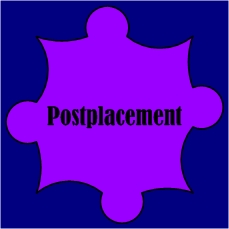Siblings Find Each Other from DNA testing

“Adoption laws in the U.S. vary state by state, but for 41 of them and Washington, D.C., there are tight restrictions on adoptees accessing their birth certificates. In these restricted states adult adoptees don’t have automatic access to their original birth certificates detailing their original names, their biological parents or their birth place.
On Nov. 14, New York Gov. Andrew Cuomo signed a bill that will establish New York as the 10th state to allow unrestricted access to original birth certificates for adult adoptees effective Jan. 15. It applies retroactively.
Susannah Gilbard, 61 years old, always knew she was adopted. As far as she was concerned, her life was complete and there were no missing elements in her Queens, N.Y., upbringing.
“From the beginning of time everybody asked [me], ‘Don’t you want to know where you come from? And don’t you want to find out your health issues?’ and, you know, this endless list of questions, and my answer was always, ‘no.’ I’m not interested at all because, frankly, I have really good parents. I was really lucky. Everything was fine.”
Because Ms. Gilbard’s adoption records were sealed and she came straight from the hospital to her parents, she had little identifying information about her biological family. As she grew older, she became more curious about her heritage, which her adoptive parents knew was Jewish through her birth doctor. So Ms. Gilbard eventually decided to take a DNA test to explore her ancestry.
“And then one day out of the blue, I get an email from someone [named] Arnold Goldman, who says we’re either parents, siblings or grandparents to each other,” said Ms. Gilbard.
Arnold Goldman, 62, had grown up in Staten Island with different circumstances in adoption. He had been adopted through the Louise Wise Agency in New York, now infamous for the experiments it carried out on children in the late 20th century, as detailed in the documentary “Three Identical Strangers.” At the time, the agency claimed that it was legally researching what role nature versus nurture plays in child development.
The most glaring difference between Mr. Goldman and Ms. Gilbard’s situations was that his parents had kept the fact of his adoption a secret. It wasn’t until he accidentally discovered his adoption papers later in life, after his parents died, that he found out the truth.
He decided to take a DNA test in late 2017, and once Ms. Gilbard put her results online several months later, he saw a match and sent her a message. After a few exchanged messages, the two quickly figured out they could be siblings.
In January 2018, Mr. Goldman and Ms. Gilbard met up in New York City with some of their children, having grown closer while communicating over how to solve the puzzle of their ancestry.
“We talked about such personal things immediately as if we knew each other forever. We were comparing everything from fingernails to teeth,” said Ms. Gilbard. After their in-person meeting solidified a new friendship, they ramped up their search for answers.
However, Ms. Gilbard and Mr. Goldman faced many roadblocks as adult adoptees when trying to track down their biological families.
In New York, and in most states that have restricted access to original birth certificates, adult adoptees’ only formal option is to petition the court to unseal their records. In the case of Ms. Gilbard and Mr. Goldman, who were both adopted in New York, they didn’t see the court system as a promising avenue for their search.
“It’s basically a no-go [in New York] unless it involves a catastrophic illness or provides potential for establishing foreign citizenship through a birth parent, though even those don’t always work,” explained Gregory D. Luce, founder of the Adoptee Rights Law Center, who helped draft the New York law and founded the Adoptee Rights Law Center.
Without known illnesses or questions of citizenship, Ms. Gilbard and Mr. Goldman decided to consolidate the little identifying information about their births that they could find and turn to an amateur genealogist to track down their ancestry.
With the help of a self-described “Search Angel,” Ms. Gilbard and Mr. Goldman were able to track down information about their possible birth father. But the man had died in 2016. Without DNA participation from immediate members of their suspected biological father’s family—or an original birth certificate—they couldn’t be 100% confident that the man they suspect is their father. Once the new law takes effect, the two are planning to immediately seek access to their birth records to get some closure in their lives.
Despite the mystery still surrounding their ancestry, the siblings are happy to have found each other. “My [adoptive] parents couldn’t be any more thrilled. My mother was just like, ‘I’m so happy to be leaving you with family.’ She just sees it like a godsend,” said Ms. Gilbard.
Mr. Goldman echoed her statements, “I don’t think of myself as connected to these other families [other individuals identified in his DNA tree]. I don’t necessarily need relationships with all the outlier people. However, Susie is a gift, really a gift.”
Two Siblings Discover Each Other Through DNA Testing
[Wall Street Journal 12/19/19 by Xavier Cousens]
REFORM Puzzle Piece


Recent Comments